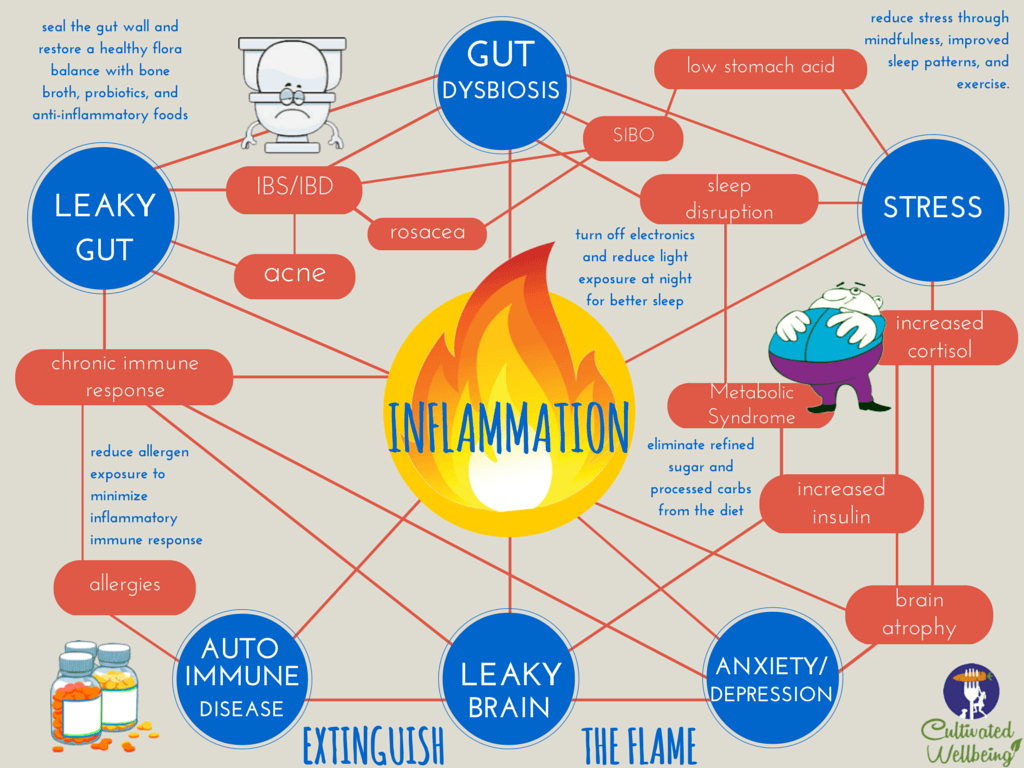
Chronic Inflammation
Chronic Inflammation
Inflammation of the body can be activated by increased levels of toxins, infection, poor circulation, or trauma. Dietary and lifestyle changes can improve the way the body reacts to these triggers.The signs and symptoms that you will experience will depend on what system of your body is affected by the inflammation. For example:
SKIN – itchiness, redness, swelling and rashes (including eczema, dermatitis, psoriasis)
BRAIN & NERVOUS SYSTEM – Mood and memory disturbances and behavioural problems (including ADHD, inability to concentrate, hyperactivity, depression, anxiety)
BLOOD VESSELS – causing headaches, migraines and high blood pressure
LUNGS & IMMUNE SYSTEM – recurrent infections, mucous accumulation (including asthma, sinusitis, post nasal drip, ear infections, runny nose)
MUSCULOSKELETAL – Joint pain, muscle stiffness and swelling (including arthritis and fibromyalgia)
DIGESTIVE TRACT – nausea & vomiting, diarrhea, abdominal pain, gas, and bloating (including Irritable Bowel Syndrome and Crohn’s disease)
One of the more common triggers for inflammation is food intolerances or sensitivities.
Read More on Food Intolerances
What is the difference between a Food Allergy and a Food Intolerance?
The symptoms of food allergy occur quickly, usually within one hour. The reaction is obvious and may be quite severe. True allergies (like peanut allergies in children), which are associated with IgE antibodies, are suspected to affect only a small percentage of the population. Symptoms usually involve swelling of the lips and throat; breathing difficulties; skin rashes; severe pain; vomiting or diarrhea. Your medical doctor or an allergist will test for these type of IgE reactions.
Food sensitivities or intolerances are IgG antibodies type of reactions. They affect many more people and can develop at any time during your life. Unlike food allergies, symptoms may be delayed for hours, days or even months after the exposure, making diagnosis more difficult without the blood test. So by the time you feel the pain, headache or get that awful rash, it could be a reaction from something you ate even 3 days ago. The more common food intolerances include: sugar, dairy, gluten, peanuts, eggs, soy, and citrus. However, this does not mean you will for sure be intolerant to all these foods and in addition, there is the possibility of being intolerant to a food less common such as garlic, potato, kidney beans, etc.
Testing is the by far the best method of assessing what is the best diet for you if you have signs and symptoms of inflammation in your body.
